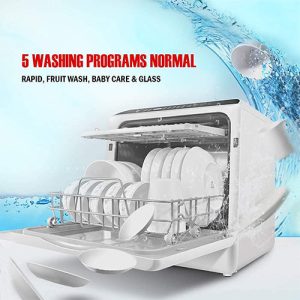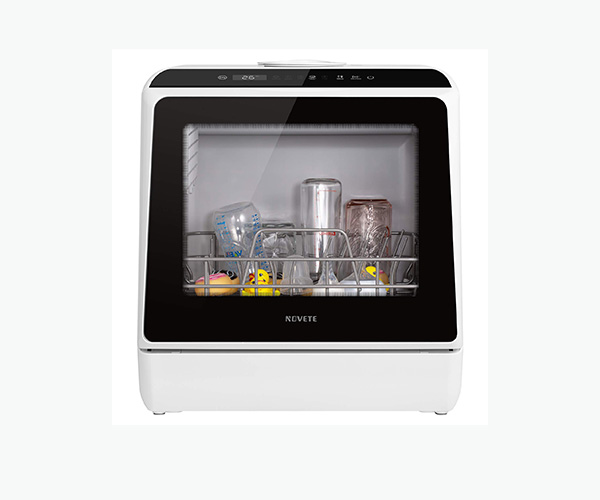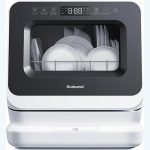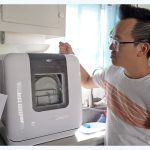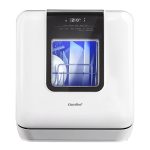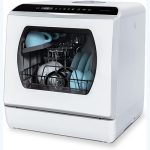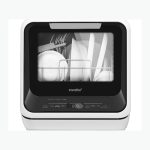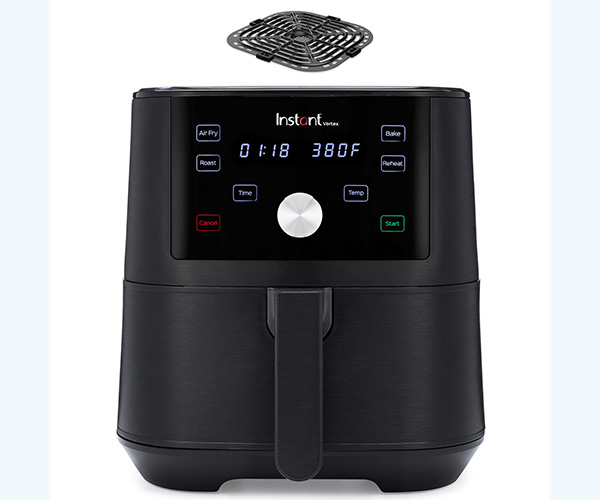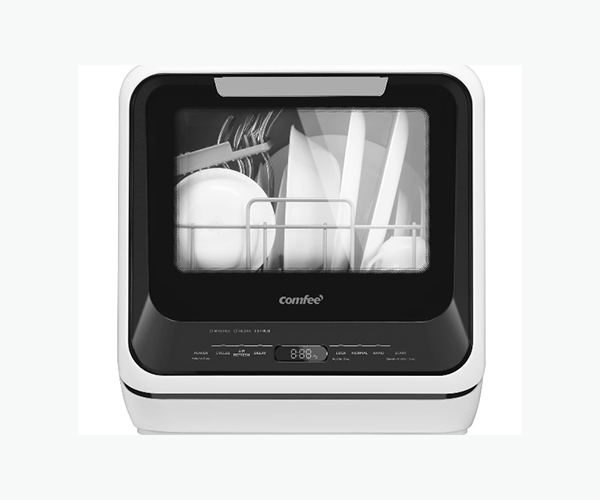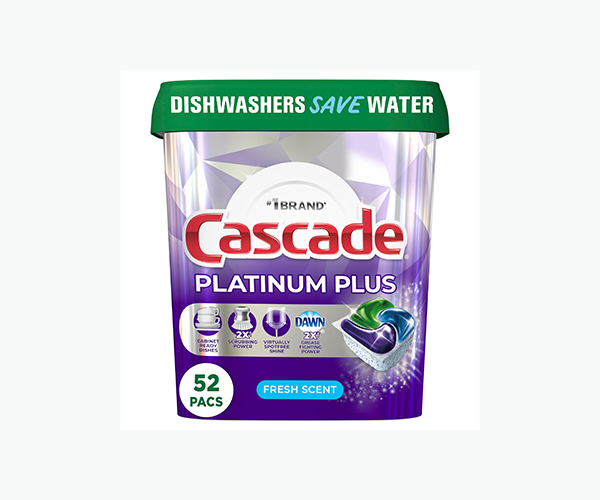DIY Dishwasher Repairs: Tips and Tricks
Introduction
Have you ever had to deal with the intimidating sight of a dishwasher full of unwashed dishes or one that would not start at all? I’ve experienced it, and I can assure you that it’s not the ideal beginning to a restful evening. Many of us have heard stories like this, and they typically result in either a large repair bill or a new purchase. However, what if I told you that you could solve a lot of typical dishwasher issues on your own with a little knowledge? More specifically, this article is going to become your new best buddy if you own a Criterion dishwasher. Many homes choose Criterion dishwashers because of its reputation for dependability and efficiency. As with every appliance, though, they have their moments. This in-depth manual is intended to provide you the skills and self-assurance you need to handle simple maintenance and repairs. We can help you with everything from comprehending the special characteristics of your Criterion model to becoming an expert at do-it-yourself repairs. Now that you’re ready, gather your tools, and let’s explore the realm of do-it-yourself dishwasher repairs!
Understanding Your Criterion Dishwasher
Dishwashers made by Criterion are unique among household appliances because of their unique combination of dependability, style, and efficiency. The first step to being an expert at do-it-yourself repairs is to understand your Criterion dishwasher. A closer look at these appliances is provided here:
- Basic Overview:
- Criterion dishwashers are renowned for their robust cleaning capabilities and energy efficiency.
- They typically feature multiple wash cycles tailored to different types of dishware and soiling levels.
- Advanced models come equipped with smart technology, allowing for remote diagnostics and operation.
- Common Models and Their Unique Features:
- Criterion CDW1: Known for its compact design, ideal for smaller kitchens or apartments.
- Key Feature: Eco-friendly wash cycle that conserves water and energy.
- Criterion CDW2: A step up, offering more capacity and specialized wash cycles for tougher stains.
- Key Feature: Intensive wash mode for heavily soiled pots and pans.
- Criterion CDW3: The premium model boasting advanced features like noise reduction and enhanced drying technology.
- Key Feature: Smart sensor technology that adjusts the wash cycle based on load size and soil level.
- Criterion CDW1: Known for its compact design, ideal for smaller kitchens or apartments.
It’s important to know the exact model of your Criterion dishwasher. Every model is different, and these differences can affect how repairs and maintenance are handled. For example, different troubleshooting procedures may be needed for a dishwasher equipped with smart sensor technology than for a more basic one.
It’s crucial to consider your Criterion dishwasher’s model-specific characteristics before beginning any DIY repairs. This information guarantees that you can maximize the potential of your dishwasher and helps with precise troubleshooting. A comprehensive understanding of your dishwasher model lays the groundwork for efficient do-it-yourself repairs and maintenance, whether it’s about making the most of smart features or comprehending the ins and outs of each wash cycle.
In conclusion, Criterion dishwashers are a popular option in many homes because they combine cutting-edge technology with user-centric design. Gaining an awareness of the fundamentals and distinctive characteristics of your particular model can help you identify problems more accurately, carry out efficient repairs, and maximize the appliance’s functionality. Recall that having a thorough understanding of your dishwasher is the first step towards effective DIY repairs.
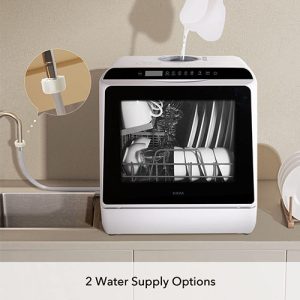
Pre-Repair Checklist
It’s important to make sure you’re ready before you start fixing your Criterion dishwasher. Having the correct tools and following safety precautions are essential to making any do-it-yourself project safe and successful. Here are some things to think about:
- Safety First:
- Disconnect the Power: Always unplug your dishwasher from the electrical outlet before starting any repair. This is a non-negotiable step to prevent any electrical accidents.
- Turn Off the Water Supply: Locate the water supply valve, usually under the kitchen sink, and turn it off. This prevents any unexpected water flow during repairs.
- Gather Your Tools and Materials:
- Basic Toolkit: Ensure you have a set of screwdrivers (both flathead and Phillips), pliers, an adjustable wrench, and a flashlight. These are essential for most dishwasher repairs.
- Model-Specific Tools: Some Criterion dishwasher models may require specialized tools. Check your user manual for any specific requirements.
- Protective Gear: Safety gloves and goggles are recommended to protect your hands and eyes during the repair process.
- Understand Your Dishwasher:
- Model and Serial Number: Knowing the exact model and serial number of your Criterion dishwasher can be incredibly helpful. This information is usually found on a label inside the door or on the back of the appliance and is crucial for finding the right replacement parts and troubleshooting guides.
- User Manual: Keep the user manual handy. It contains vital information about the parts and workings of your dishwasher.
- Diagnostic Tools:
- Multimeter: A multimeter can be handy for testing electrical components like the heating element or the motor.
- Flashlight: A good light source is essential for spotting leaks, blockages, and wear on parts that might not be easily visible.
- Prepare Your Workspace:
- Clear the Area: Ensure you have enough space to work comfortably. Clear out any items under the sink or around the dishwasher.
- Towels and Containers: Keep towels and small containers nearby for any water or small parts that may come out during the repair.
- Mental Preparation:
- Patience and Attention: DIY repairs require patience. Be prepared to spend some time understanding the problem and carefully working through the solution.
- Research: If you’re not entirely sure about the issue, do some research. There are plenty of resources online, including forums and videos, that can provide additional guidance.
- Backup Plan:
- Professional Help: Know when to call a professional. If the repair becomes too complex or if you’re unsure at any point, it’s better to seek help from a qualified technician.
You’ll be well-positioned to perform a successful do-it-yourself repair of your Criterion dishwasher if you adhere to this pre-repair checklist. Recall that being safe should always come first and that planning is essential.
Common Dishwasher Problems and DIY Solutions
There are certain difficulties associated with owning a criteria dishwasher. Even though these devices are usually dependable, problems can arise and cause you to miss work or other obligations. In this article, we’ll look at a few typical issues that you might have with your Criterion dishwasher and offer detailed instructions on how to resolve them.
- Problem: Dishwasher Not Starting
- Troubleshooting Power Issues:
- Ensure the dishwasher is properly plugged in and check your home’s electrical panel for any tripped breakers.
- Inspect the power cord for any visible damage or wear.
- Checking and Resetting Circuit Breakers:
- Locate your home’s electrical panel and find the breaker connected to your dishwasher.
- If the breaker has tripped, switch it off and then back on to reset it.
- Troubleshooting Power Issues:
- Problem: Dishwasher Not Draining
- Cleaning and Inspecting the Drain Hose:
- Disconnect the hose and check for clogs or kinks.
- Use a plumber’s snake or a straightened coat hanger to gently remove any blockages.
- Checking the Drain Pump for Blockages:
- Unplug the dishwasher and remove the lower rack and spray arm.
- Locate the drain pump (refer to your criterion dishwasher manual) and check for obstructions.
- Cleaning and Inspecting the Drain Hose:
- Problem: Dishes Not Cleaning Properly
- Tips for Loading Dishes Effectively:
- Avoid overcrowding and ensure that water can circulate freely.
- Place larger items on the sides and back, and smaller items in the center.
- Cleaning Spray Arms and Filters:
- Regularly clean the spray arms and filters to prevent clogs.
- Soak them in warm, soapy water and use a soft brush for cleaning.
- Tips for Loading Dishes Effectively:
- Problem: Dishwasher Leaking
- Identifying Leak Sources: Door Seal, Hose, Pump:
- Check the door seal for any signs of wear or damage.
- Inspect hoses and connections for leaks.
- Step-by-Step Guide to Fixing Leaks:
- Tighten any loose connections.
- Replace worn-out seals or hoses if necessary.
- Identifying Leak Sources: Door Seal, Hose, Pump:
- Problem: Unusual Noises During Operation
- Diagnosing Different Sounds:
- Listen to identify whether the noise is a rattle, hum, or grinding sound.
- A rattling noise might indicate loose dishes or utensils, while a grinding noise could suggest a foreign object caught in the dishwasher.
- Simple Fixes for Common Noise Issues:
- Rearrange dishes to ensure they are secure.
- Inspect the interior for any foreign objects and remove them carefully.
- Diagnosing Different Sounds:
You may save time and money by prolonging the life of your criterion dishwasher by being aware of these typical problems and learning how to fix them. Keep in mind that maintaining your dishwasher on a regular basis is essential. Never be afraid to seek assistance from a professional if you run into an issue that seems outside your area of expertise. Your first concern should always be safety.
Advanced Repairs for the Enthusiastic DIYer
Sometimes the problems with Criterion dishwashers call for a little more technical expertise. These advanced repair ideas will help you avoid going to the repair shop if you’re ready to take your do-it-yourself talents to the next level. Always remember that safety comes first, so before undertaking these repairs, make sure the water and electrical supplies are turned off.
- Replacing a Worn-Out Door Seal:
- Identify the Problem: A common issue with Criterion dishwashers is a leaky door. This often stems from a worn-out door seal.
- Locate the Seal: The door seal is typically found on the dishwasher’s door perimeter.
- Removal Process: Carefully pry off the old seal. It’s usually clipped or glued in place.
- Choosing the Right Seal: Ensure you purchase a seal that matches your Criterion dishwasher model.
- Installation: Fit the new seal into the groove, starting from the top middle and working your way down to the sides. Press firmly to secure it in place.
- Changing the Dishwasher Pump:
- Symptoms of a Faulty Pump: If your dishwasher isn’t draining properly or making unusual noises, the pump might be the culprit.
- Accessing the Pump: Remove the lower front panel of your Criterion dishwasher. The pump is usually located near the bottom.
- Removal: Disconnect the hoses and wiring connected to the pump. Unscrew and remove the old pump.
- Selecting a Replacement: Ensure the new pump is compatible with your Criterion dishwasher.
- Installation: Attach the new pump, reconnect the hoses and wiring, and secure it with screws.
Recall that even while these fixes can be more involved, they are still completely doable with perseverance and close attention to detail. These fixes not only increase the lifespan of your Criterion dishwasher but also bring you a sense of achievement and can be entertaining for do-it-yourself enthusiasts.
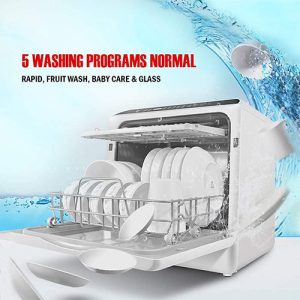
Maintenance Tips to Avoid Future Repairs
The goal of maintaining your Criterion dishwasher is to avoid issues in the first place rather than merely solving them when they happen. You may avoid unplanned breakdowns and save time, money, and irritation by doing routine maintenance. Here are some vital pointers to maintain the optimal operation of your Criterion dishwasher:
- Regular Cleaning:
- Interior Cleaning: Once a month, run an empty cycle with a dishwasher cleaner to remove any built-up grease and limescale. This keeps the interior clean and odor-free.
- Filter Cleaning: The filter traps food particles and needs regular cleaning. Remove and rinse it under running water every few weeks to prevent clogs and odors.
- Inspect and Clean Spray Arms:
- The spray arms are crucial for an effective wash. Check them regularly for clogs in the spray holes. Use a toothpick or a small brush to clear out any debris.
- Door Seal Care:
- The door seal keeps water inside the dishwasher. Wipe it down with a damp cloth every few weeks to prevent buildup of grime and ensure a tight seal.
- Rinse Dishes Before Loading:
- While Criterion dishwashers are powerful, rinsing dishes can prevent food particles from clogging the system. It doesn’t need to be thorough; a quick rinse will do.
- Use the Right Detergent:
- Not all detergents are equal. Use a high-quality detergent recommended for Criterion dishwashers. This ensures a better clean and can prevent soap buildup.
- Load the Dishwasher Correctly:
- Overloading or improper loading can lead to dishes not being cleaned properly and can strain the dishwasher. Follow the manufacturer’s guidelines for loading.
- Regularly Check and Clean the Edges and Corners:
- Food particles and debris often accumulate in the corners and edges of the dishwasher. A regular wipe-down can prevent buildup.
- Check and Tighten Connections:
- Periodically check the water inlet and drainage hoses. Tighten any loose connections to prevent leaks.
- Avoid Using Hard Water:
- Hard water can lead to limescale buildup, which can damage your dishwasher over time. Consider installing a water softener if you live in a hard water area.
- Run Full Loads:
- Running your dishwasher only when it’s full is not only energy-efficient but also prevents unnecessary wear and tear from frequent use.
You can make sure that your Criterion dishwasher is a dependable and effective kitchen assistant for many years to come by paying attention to these maintenance recommendations. Recall that regular maintenance can help your equipment last longer and require less expensive repairs.
When to Call a Professional
While doing your own Criterion dishwasher repairs can be rewarding and economical, there are instances when hiring an expert is the best course of action. It’s critical to know when to call for professional assistance in order to ensure both the longevity of your dishwasher and, more importantly, your personal safety. Key situations where seeking expert assistance is advised are as follows:
- Complex Electrical Issues:
- If you encounter intricate electrical problems, such as wiring faults or control panel malfunctions in your Criterion dishwasher, it’s time to call a technician.
- DIY attempts on complex electrical components can be dangerous and might void your warranty.
- Water Leakage of Unknown Origin:
- While minor leaks can often be fixed with DIY methods, significant or unidentifiable sources of water leakage should be inspected by a professional.
- Persistent leaks can lead to water damage in your home and may indicate a deeper issue with your Criterion dishwasher.
- Repeated Breakdowns:
- If the same problem keeps recurring despite your repair attempts, it’s a sign that a deeper, possibly systemic issue exists.
- A professional can diagnose and resolve underlying problems that aren’t apparent to the untrained eye.
- Installation of New Parts:
- Installing major components, like a new motor or pump, can be complex and requires specific tools and expertise.
- Incorrect installation can lead to inefficiency, damage, or even pose safety risks.
- After DIY Troubleshooting Fails:
- If you’ve followed all the steps in DIY guides but your Criterion dishwasher still isn’t functioning correctly, a professional’s insight is invaluable.
- They can provide a more thorough diagnosis and often have access to advanced diagnostic tools.
- When Under Warranty:
- If your dishwasher is still under warranty, DIY repairs might void it. In such cases, always opt for professional service.
- Check your Criterion dishwasher warranty terms before attempting any repairs.
- Safety Concerns:
- If at any point you feel unsure or unsafe about a repair, stop and consult a professional.
- Dishwasher repairs can involve sharp objects, electrical components, and water – a combination that requires caution.
Recall that although doing repairs yourself can be rewarding and cost-effective, it is not worth jeopardizing your safety or allowing your appliance to sustain additional harm. It is important to seek professional assistance if the problem is beyond your level of expertise or if you have questions about any step in the repair process. You must take care of your Criterion dishwasher properly and for as long as possible because it is a necessary component of your everyday routine.
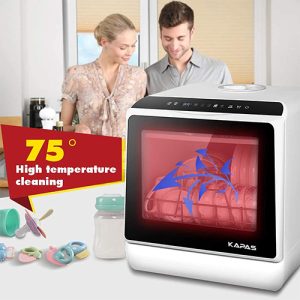
FAQs about DIY Dishwasher Repairs: Tips and Tricks
1. Can I really fix my dishwasher myself?
Yes, many common dishwasher problems can be fixed with some basic DIY skills. Simple issues like clogs, leaks, or minor part replacements often don’t require professional help. However, ensure you understand the problem and follow safety guidelines.
2. What safety precautions should I take before attempting a repair?
Always disconnect the power supply and turn off the water source to your dishwasher. Wear protective gloves and eyewear if necessary, and make sure you work in a well-lit area.
3. How do I diagnose why my dishwasher isn’t starting?
Check the power source first – ensure the dishwasher is plugged in and the circuit breaker hasn’t tripped. If power isn’t the issue, inspect the door latch as it might prevent the cycle from starting if not properly engaged.
4. What should I do if my dishwasher isn’t draining properly?
Start by checking the drain hose for kinks or clogs. Clean the dishwasher filter and check the drain pump for blockages. Sometimes, food particles or glass shards can obstruct the pump.
5. Why aren’t my dishes coming out clean?
Ensure you’re loading the dishwasher correctly – overcrowding can prevent dishes from getting clean. Regularly clean the spray arms and filters. Also, check if the detergent dispenser is working properly.
6. How can I fix a leaking dishwasher?
Identify the source of the leak. Common causes include a damaged door seal, loose hose connections, or a faulty pump. Door seals can be replaced, and hose connections can be tightened to fix leaks.
7. What are some advanced repairs I can do myself?
Replacing a worn-out door seal or changing the dishwasher pump are advanced repairs. These require a bit more technical know-how but are doable with the right tools and instructions.
8. When should I call a professional for dishwasher repairs?
If you’re unsure about the problem, if it involves electrical components, or if the issue persists after your attempts to fix it, it’s time to call a professional. Complex repairs might require specialized knowledge and tools.
Conclusion
Dishwashers made by Criterion are a shining example of dependability and effectiveness in the world of home appliances. We have explored the complexities of these devices throughout this book, revealing the ease of use that belies their complex functioning. From the first troubleshooting to the last adjustments, the path of do-it-yourself repairs is about more than just cutting expenses or avoiding the headache of hiring a professional; it’s about forging a closer bond with the appliances that improve our everyday life.
With their sturdy construction and user-friendly design, Criterion dishwashers are more than just kitchen appliances—they are silent, devoted allies in our efforts to keep our homes tidy and organized. We can prolong their lifespan and improve their performance by learning about their mechanics and taking care of typical problems. Fixing a non-starting dishwasher or finding a leak has a very empowering effect. It changes how we interact with technology, making us become informed, engaged participants instead of just passive users.
Furthermore, the process of doing do-it-yourself repairs is evidence of the tenacity and creativity that are innate in each of us. It’s a reminder that with the correct guidance, patience, and a little of elbow grease, we can conquer issues that we once felt were beyond our ability. As we come to the end of this book, keep in mind that every issue you resolve and every repair you make expands your skill set and helps you comprehend the world of appliances better.
Fundamentally, Criterion dishwashers are an invitation to embrace the do-it-yourself mentality, to learn, and to develop; they are more than just a kitchen option. Every action you do, whether it’s tightening a screw or changing a pump, contributes to your increased independence, resourcefulness, and awareness of the devices that simplify our lives. Thus, the next time your dishwasher throws you a curveball, take a deep breath, keep your lessons in mind, and tackle the problem with assurance. Not only are you learning how to fix things yourself, but you’re also demonstrating your ability to take on any task and proving to be a capable, driven individual.
